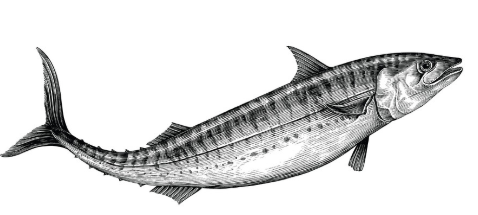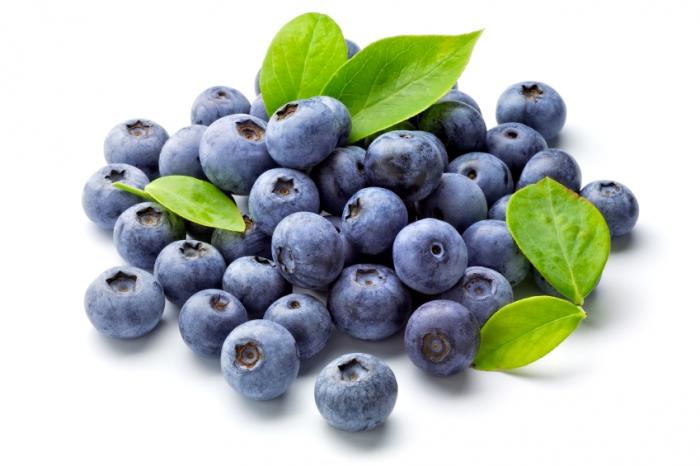One of the most overlooked aspects of mental health is nutrition. Food plays a significant role in our physical health, as well as our mental and emotional health. When struggling with depression, it can feel a bit overwhelming to think about eating certain foods. However, even the smallest changes in your diet may help decrease your symptoms and have a positive effect on your daily life and overall treatment.
Despite some claims, there’s no specific diet proven to relieve depression. There are, however, a variety of options that can provide mood-boosting benefits.
Antioxidants Prevent Cell Damage

Free radicals are molecules produced normally by our bodies, which can lead to cell damage, aging, and other problems. While there’s no way to stop them completely, you may be able to lessen their destructive effect by eating foods rich in antioxidants, such as:
Fish
Wild-caught fish, especially the oilier types like salmon, mackerel, trout, sardines, and (not canned) tuna are great choices for fighting depression as they are rich sources in omega-3 fats.

Omega-3 fats help to build connections between brain cells as well as build and strengthen the receptor sites for neurotransmitters. By increasing your intake of omega-3s, you can help increase your serotonin production and improve your mood. Recent research published in the Journal of Epidemiology and Community Health, found that people who consumed the most fish were less likely to experience symptoms of depression.
Salmon
Salmon offers two benefits to your mental health, with one being the amount of omega-3s it provides which are essential to brain health.
The other benefit is, it’s a great source of Vitamin D.
While the majority of the population may not be deficient in Vitamin D, a recent national study found that the likelihood of having depression is higher in people with low levels of Vitamin D. In another study, researchers from the University of Toronto noticed that people who had symptoms of depression, particularly those with seasonal affective disorder, tend to get better when the amount of Vitamin D in their bodies went up as you’d expect it to during the spring and summer.
Wild Blueberries

While all berries are a good food choice, blueberries have higher levels of Vitamin C and polyphenols. These compounds act as antioxidants protecting brain cells from harmful free radicals and promoting proper brain functioning, particularly during stressful periods.
For an even bigger boost to brain health, opt for blueberries labeled “wild,” which are a specific type harvested in the Northeast which appears to have higher concentrations of the antioxidant-like compounds. In fact, when given a drink made with wild blueberries, both kids and adults were reported to have a significant increase in overall mood and outlook two hours later.
Most wild blueberries are frozen immediately after harvest to preserve nutrients, so look for them near other frozen berries and fruits. Then you can use them in smoothies, or thaw and stir into batter for muffins.
Walnuts
Although other nuts like cashews, brazil nuts, and hazelnuts are helpful in supplementing omega-3 fats. Walnuts are known to support overall brain health, being one of the highest plant-based sources of omega-3s and a great source of protein to help keep blood sugar levels at a healthy balance. I personally like to add mine to my salads (with sliced apples, chicken, feta – topped with a raspberry vinaigrette).
One study found that depression scores were 26% lower among those who consumed about one-quarter cup of walnuts per day. Additionally, they found that adults who ate nuts, specifically walnuts, were more likely to have higher levels of optimism, energy, hope, concentration, and a greater interest in activities.
Oysters

Eating oysters to treat depression may sound odd, but a psychiatrist at Columbia University recently made headlines by revealing that he often encourages his patients with depression to regularly consume oysters. Why? It turns out that oysters, as well as other mollusks and shellfish, are a great source of zinc, which plays a key role in daily brain functioning – specifically in regard to mental clarity, behavior, and attention.
Research has also noted that those with depression tend to have lower levels of zinc. While it’s unknown if a lack of zinc leads to depression, or if low zinc levels are a side effect of depression, almost everyone can benefit by incorporating more zinc-rich foods. Oysters and other shellfish are good choices since they also provide Vitamin B12, omega-3 fatty acids, and selenium.
* Low selenium has been reported to contribute to more depressive symptoms. For a boost in your overall mood, try incorporating more:
– beans and legumes
– low-fat dairy products
– lean meats like pork, beef, skinless chicken and turkey
– brazil nuts, which have the highest selenium levels compared to other nuts
– seafood including oysters, clams, sardine, crab, saltwater and freshwater fish
– whole grains such as whole-grain pasta, brown rice and oatmeal
Beans
Beans are a great source of protein and fiber, both of which help in maintaining stable and consistent blood sugar levels. This, in turn, helps minimize the blood sugar spikes and dips that can affect our mood.
Beans are also great sources of folate, a B vitamin that helps the body use Vitamin B12 and amino acids to detox and create new cells. Garbanzo beans (also known as chickpeas) are very high in folate, offering over 100& of the daily recommended value in just a half-cup. Pinto beans are another great choice, with a half-cup serving offering 37% of the daily recommended value of folate.
Seeds
Flaxseed and chia seeds make excellent additions to your diet, as they are also great sources of omega-3 fats. Just one tablespoon of chia seeds provides approximately 61% of your daily recommended amount of omega-3s and one tablespoon of flaxseed provides roughly 39% of the daily recommendation. You can add that tablespoon right to any smoothie – won’t even taste the seeds.
Pumpkin and squash seeds are also beneficial in managing depressive symptoms. They increase tryptophan, an essential amino acid that produces niacin and helps create serotonin. Just one ounce provides approximately 58% of the recommended daily intake.
Protein-rich food, like turkey, tuna and chicken, also contain tryptophan. Try to eat something with protein a few times a day, especially when you need to clear your mind and boost your energy — 3 ounces of roasted chicken breasts offers 123% of the recommended daily intake of tryptophan.
Vegetables

Research has found that people with depression have a lower dietary intake of folate compared to those without depression. Dark, leafy greens – such as brussels sprouts, spinach, kale, and watercress – possess the highest levels of folate and can help improve and stabilize mood.
They’re also good sources of ALA (alpha-linolenic acid), one of the three main types of omega-3 fatty acids. For optimal brain health, most recommendations suggest eating a serving of leafy greens daily (or around 5 to 7 cups per week).
Probiotics
More and more research is linking good gut health with good mental health. Several studies found that the microorganisms living in our guts, including probiotics, may play a key role in mood by helping to reduce inflammation in your body, produce feel-good neurotransmitters, and affect your stress response. This might explain why a higher than average number of people with irritable bowel syndrome also develop depression as well as anxiety.
Foods that contain probiotics include:
– yogurt
– tempeh
– miso
– tofu
– sauerkraut
– kimchi
– kombucha
Going Sugar-Free

Of course, anything in moderation won’t harm you, but being aware of the negative impacts that certain food can have on your mental health can help you make better choices.
Just as much as sugar can impact your waistline, it can also significantly impact your mood. Limiting food that’s high in sugar, particularly those with added sugar, will keep your blood sugar levels more evenly balanced throughout the day which will help your mood stay more evenly balanced, as well.
In order to be on the lookout for added sugar, you may want to look for the following terms: corn syrup, high fructose corn syrup (HFCS), dextrose, fructose, honey, lactose, maltose, sucrose
* Just as with sugar, you should remain on the lookout for refined grains. The term refined refers to forms of sugar and starches that don’t exist in nature. Loading your diet with these refined carbohydrate foods (like white rice, pasta, crackers, bread, chips, and breaded foods) will take your blood sugar levels on a rollercoaster throughout the day – which can result in symptoms of low mood and fatigue.
Caffeine can help you start your day, but it can also lead to crashes later in the day. However, a moderate amount of caffeine, 2 to 3 cups per day, has been linked to a lower risk of suicide. An alternative is green tea. In addition to antioxidant benefits, green tea is also known to provide theanine, an amino acid that offers an anti-stress benefit that can be helpful for those struggling with depression.
Additionally, limiting alcohol may be in your best interest if you struggle with depression since alcohol is a depressant, that can lead to impaired vision, judgment and reaction time. Also, most alcoholic beverages can be quite sugary – enhancing symptoms of low moods.
Sources:
- Depression and Diet. 2019.
- Williams Ph.D RD, Carolyn. 8 Foods That Help Fight Depression, According to a Nutritionist. Cooking Light. 2019.

Awesome compilation. I just posted something about nutrition and brain health, and in the process learned about the oysters thing. I just might have to make myself try some. Now to find a way to eat them that tastes good and doesn’t ruin the nutrition! lol!
LikeLike
Lol yes! Before learning about the health benefits, I had no interest in eating oysters… I’m thinking about making another post to give us all some quick ways to incorporate them into our diets. Thank you for your comment!
LikeLiked by 1 person
I went to Pinterest right after reading your post and found a few things. 🙂
LikeLiked by 1 person
Oh great!! 🙂
LikeLike